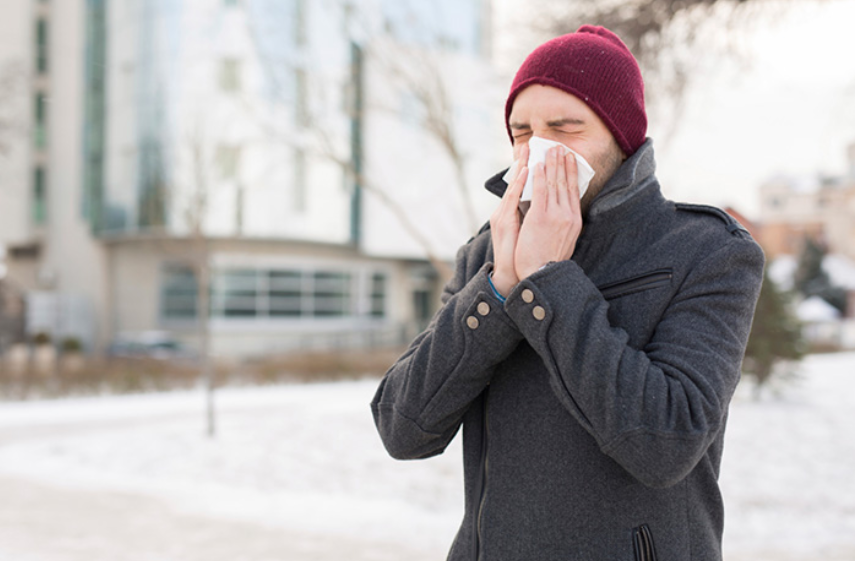
Sponsored by Johnson & Johnson
Pressure in the sinuses? It could be more than just a cold — it may be a sinus infection. Here are four sinus-infection tips for understanding and dealing with sinus infections.
Are sinus infections contagious? If so, how long is a sinus infection contagious for?
Sinus infections are probably not contagious. Unlike colds, sinus infections can be caused by bacteria. People who have allergies, asthma, structural blockages in the nose or sinuses, or people with weak immune systems are at greater risk for getting sinus infections. Also, people with nasal polyps (growths) or with narrow nasal passages can be more likely to get sinus infections. Antibiotics are a common treatment and you can also try nasal decongestant sprays and antihistamines to relieve symptoms. And as always, if you have a sinus infection, or recurring infections, talk to your doctor about your treatment options.
How can I help unclog my sinuses?
If you’re looking to unclog sinuses, drink plenty of fluids. It will help unclog your sinuses and hydrate your sinus-pressured self. You can also take decongestants suggested by your doctor, or use a clean humidifier or cool mist vaporizer to keep your sinuses moist. Other sinus-infection treatment and prevention tips include not smoking, avoiding second-hand smoke and other pollutants (airborne chemicals or irritants) that can irritate the nasal lining.
How can I be congested but have a runny nose at the same time?
The double trouble in the world of sinuses is caused by two different things. The stuffy nose come from swelling in your nasal passages, while post-nasal drip from a cold or sinus infection runs down the back of your throat. A cool mist vaporizer or saline spray may help ease symptoms. If you’re still looking for how to deal with a sinus infection, your doctor may also recommend over-the-counter medicines that can relieve symptoms.
Can a sinus infection cause a toothache?
Yes. Among the other joyful features of a sinus infection, there is a chance it can cause a toothache, particularly in the upper rear teeth (which are near the sinuses). First see your dentist to rule out a dental cause for the toothache, then consult your doctor. He or she will consider whether you’re experiencing your sinus infection, irritation, or another underlying medical problem is contributing to the toothache and can provide treatment if necessary.©Johnson & Johnson Consumer Inc. 2019

